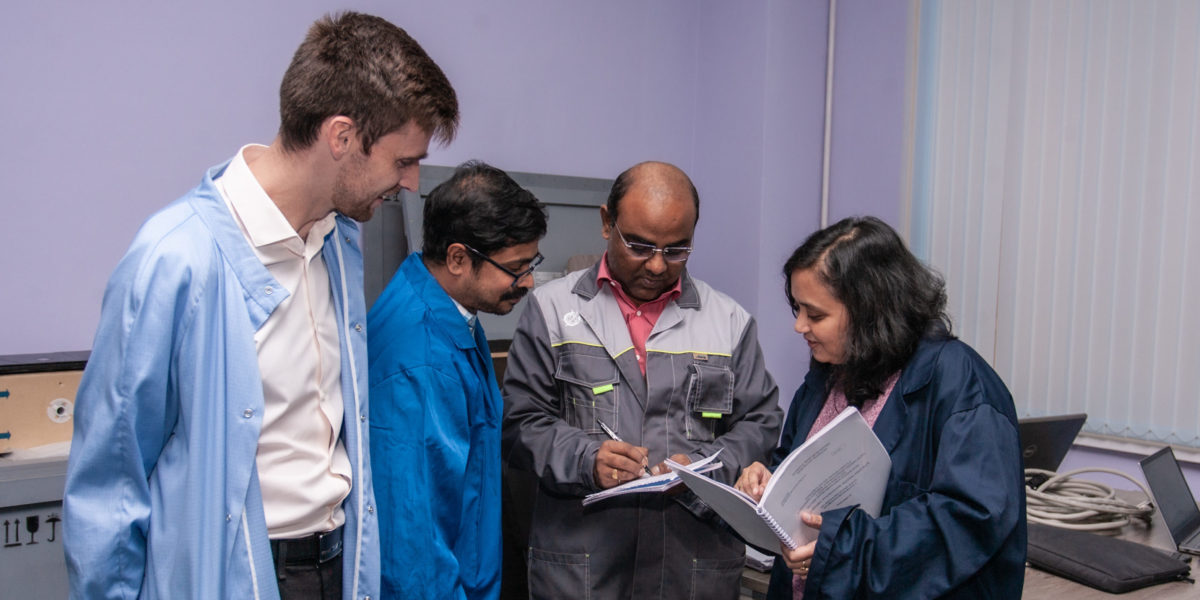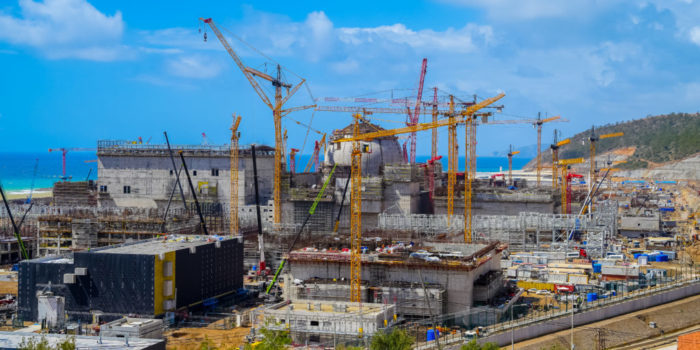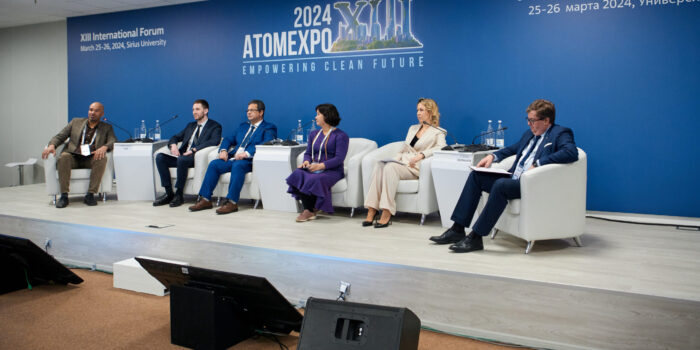In-Core Instrumentation System (ICIS) and System for Integrated Analysis (SIA) for Kudankulam NPP Unit 3 were tested by Rusatom Automated Control Systems JSC (RASU JSC, a company of Rosatom State Corporation) together with representatives of Nuclear Power Corporation of India LTD (NPCIL). At the same time, testing of automated leakage detection subsystems for Units 3 and 4 was completed.
Acceptance tests and comprehensive integration tests were carried out at the site of the manufacturer, Specialized Scientific Research Institute for Instrumentation Engineering (SNIIP JSC, a company under the management of RASU JSC). ICIS and SIA were the first subsystems to receive a confirmation of readiness. Equipment within these systems ensures acquisition, analysis and transmission of information on the reactor state to Main Control Room (MCR). After that, leakage monitoring systems (ALMS, ALMS-2, HLMS, HLMS-2, HLPS-2P and LMS PHRS HE) were tested together with NPCIL representatives. Following the tests, the equipment will be shipped to Kudankulam NPP site in Tamil Nadu state, India, before the end of 2023.
«All these subsystems are part of MCDS – reactor monitoring, control and diagnostic system. They ensure monitoring and control of the reactor plant in different operating modes, and have a project-specific design that takes into account technical features of the future power unit and the customer’s requirements. In this case, the equipment has been designed for Kudankulam NPP Units 3 and 4 with VVER-1000 reactors», said Dmitry Kukushkin, Head of Kudankulam NPP I&C Project Office, RASU JSC.
Similar equipment developed together with NRC Kurchatov Institute was installed at Kudankulam NPP Units 1 and 2 almost 20 years ago, and it has been operating without any issues.
Reference
In-Core Instrumentation System (ICIS) is an important part of Instrumentation and Control System, and the main element ensuring the monitoring of nuclear fuel and reactor safety parameters. The system monitors power density fields, temperature fields, and keeps track of process parameters in different operating modes of the reactor, including abnormal situations.
ICIS is an autonomous, functionally completed system with redundant main software and hardware. Due to this fact, the system keeps performing its functions in case of a single failure during the entire period of time necessary for rectification of such failure, that is, operates continuously.
Humidity Leak Monitoring System (HLMS) and Acoustic Leak Monitoring System (ALMS) for primary circuit and secondary circuit serve for detection of leakages from coolant pipelines and main steam pipes. IAEA standards require that NPP power units must apply at least three independent methods to detect potential leaks and, therefore, at least three independent automated systems that implement those methods. So, safe operation is ensured by means of several methods: by acoustic noise (ALMS-2), by the rate of steam distribution (HLMS-2), and by air humidity in containment premises and the most probable locations where a leakage may occur (HLMS-2P).
Kudankulam NPP is a VVER-1000 nuclear power plant located in Tamil Nadu state in the south of India. Kudankulam NPP Unit 1 has been steadily operating at the design capacity level of 1000 MW since February 2016. Unit 2 was connected to the national grid of India on August 29, 2016. The general framework agreement was signed with Rosatom on the construction of Units 3 and 4 in the spring of 2014. In June, 2017, the Engineering Division of Rosatom State Corporation and Nuclear Power Corporation of India LTD signed an agreement on construction of the third phase (Units 5 and 6) of Kudankulam NPP.
Rusatom Automated Control Systems JSC (RASU JSC) is the managing company of I&C and Electrical Engineering Division of Rosatom State Corporation. The company is the single integrator of I&C, Electrical Engineering and Nuclear Instrumentation businesses. RASU JSC brings together the extensive experience of Rosatom’s enterprises in the development of automated control systems and comprehensive electrical engineering solutions.
Russia is gradually developing international commercial and economic relations focusing on cooperation with friendly countries. Despite any external restrictions, our domestic economy is building up its export potential, carries out delivery of goods, services and raw materials around the world. International major projects in energy industry are being implemented. Rosatom and its enterprises are actively involved in these works.





